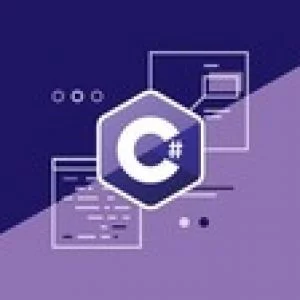
Last updated: November 17th, 2017 – Added new promo video
Do you know how to write fast C# code?
You may have already enrolled in a C# programming course, or learned the language at school or university. But here’s a sobering fact: most courses only teach you how to write code, not how to write fast code.
The .NET Framework is huge. For any given problem there are many solutions, and it is not always clear which solution is the best choice.
Did you know that adding strings together using the wrong Framework class will slow down your code by a factor of more than two hundred? And if you’re not handling exceptions the right way, your code wil run a mind–boggling thousand times slower than normal.
Slow C# code is a big problem. Slow code on the web will not scale to thousands of users. Slow code will make your user interface unusable. Slow code will make your mobile apps languish in the app store.
Slow code is holding you back!
I can help you.
In a series of short lectures I will cover many common performance bottlenecks. I will introduce each problem, and then write a small test program to measure the baseline performance. Then I will demonstrate each possible solution, and benchmark how each solution measures up.
Instructor Details
Courses : 10
Specification: C# Performance Tricks: How To Radically Speed Up Your Code.
|
13 reviews for C# Performance Tricks: How To Radically Speed Up Your Code.
Add a review Cancel reply
This site uses Akismet to reduce spam. Learn how your comment data is processed.

| Price | $14.99 |
|---|---|
| Provider | |
| Duration | 4.5 hours |
| Year | 2019 |
| Level | All |
| Language | English |
| Certificate | Yes |
| Quizzes | Yes |

$99.99 $14.99






Borys Rybak –
wietny kurs! Bardzo konkretny
Steve Pagano –
This course was difficult for me to select a rating for. Most of the material was either stuff I knew already, or it was covered too quickly/briefly, or it was too use case specific to be of any general use to me. I think most readers will benefit from sections 2 4. Section 2 (.NET framework fundamentals) is terrific, and I appreciated the novel approach of presenting each quiz *before* its corresponding lesson, so you could gage whether you needed to watch that section. Section 3 (IL crash course) has to find a balance between (a) the fact that it is often referred to in section 4 and (b) the reader will probably not find much use for it outside this class. In the end, this section is too short for (a), but I can appreciate the need for terseness due to its lack of general applicability. Section 4 is excellent, and should be a must know for all C# developers. I learned very little new here, but it’s an absolute must for this course. The only addition I’d suggest is a discussion in the for vs foreach section about maintainability of code: foreach loops tend to be much less fragile, and much less prone to error, than for loops. Perhaps there could also be a mention of the heavy prevalence of IEnumerable in (especially) backend code, and the tradeoff between converting the collection to one that supports a for loop, vs. just doing a foreach. Chapter 5, while not as immediately useful to most devs, is worth reading, particularly the section about garbage collection. Chapter 6 I found too esoteric to be of any interest to me. Overall, some very good stuff mixed with some really arcane stuff, worth taking, but not the best work from this course’s author.
Eloise Taylor –
Sound quality is quite bad. It put me off continuing the course
Binnie Hey –
Thank you Mark, all these are very new and useful to me, can’t wait to apply these to work!
Luis Miguel Luna –
Excellent course. The explanationes have great detail, and are delivered dynamically in a way that they are really interesting and include great practical examples.
Jigar Kansara –
I love the way of explanation by the CIL, so exactly we can understand what is happening behind the scene. <3
Manohar Grandhi –
Very interesting content and the presentation and the examples stated are up to the mark.
Thomas Mendicino –
This is a good match. Still struggling a bit with interpreting CIL code, more examples or more time spent on this may make it easier.
Dhiraj Kurde –
I was unknown of most of these concepts. It is deep dive but explained in very simple way.
Gabriel Babio Montero –
The sound it’s not very good
Phu Nguyen –
I was blown away by the details and content of these lectures. It’s helped to deepen my knowledge of C# tremendously. The course was very well structured and easy to follow. If you’re a fan of the planet earth series, you’d be quite pleased by the voice of the instructor as his sounds remarkably similar.
Mark Smith –
Although he takes a while to get to the jucy bits, the performance enhancements recommended are already baring dividends in my existing project. What is more although this is taught in C# the general principles apply to all .net languages.
Ezequiel Macchi Mallo –
Pretty nice way explaining things and gives a deeply understand to know what are you doing while coding